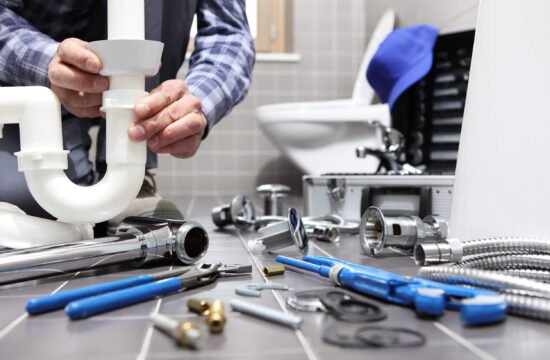TRT, or testosterone replacement therapy, helps men who have low testosterone levels. Low testosterone can cause tiredness, weight gain, low mood, and loss of muscle strength. TRT works by giving your body the testosterone it needs to feel better and stay strong. But to get the best results, it is important to focus on TRT optimisation.
Optimisation means making sure the treatment is working well and safely for your body. It includes finding the right dose, using the best delivery method, and checking your hormone levels regularly. This way, you get the benefits without unwanted side effects.
TRT is not the same for everyone. Each person’s body reacts differently. That’s why working closely with a doctor is very important. With proper tracking and healthy habits, TRT can improve your mood, energy, focus, and muscle strength. It can also help you sleep better and stay active.
This guide explains what TRT optimisation means, why it matters, and how to do it right. If you are using TRT or thinking about starting, these tips will help you make smart choices for your health.
Why Optimising TRT Is Important
TRT can bring many health benefits, but it needs to be carefully managed to work well. Optimisation helps make sure your testosterone stays in the right range and supports your body without causing harm.
Getting the Best Results from TRT
When TRT is done correctly, it helps improve how you feel and function. Many people notice more energy, better sleep, improved mood, and a stronger sex drive. It also helps build muscle, burn fat, and sharpen your mind.
But to see these results, your testosterone levels must be at the right level—not too low, but not too high. If your dose is too high, you might feel anxious, have acne, or face other problems. If it’s too low, you won’t feel much improvement.
Optimisation means checking your symptoms and test results often. If something doesn’t feel right, your doctor can adjust your plan. With regular check-ups and the right support, TRT can help you feel your best.
Avoiding Common TRT Side Effects
Some people worry about side effects when using TRT. These can include oily skin, mood swings, sleep problems, or swelling. In some cases, too much testosterone can turn into estrogen, which causes other problems like breast tenderness or fluid retention.
Optimising TRT helps avoid these side effects. Doctors can check your hormone levels and make sure they stay balanced. They may also suggest extra steps, like lifestyle changes or adding other medicines to protect your body.
When TRT is done the right way, it is safe and helpful. The key is to stay informed, listen to your body, and work with your doctor to keep things on track.
Ways to Optimise TRT for Better Results
There are a few key steps you can take to make sure your TRT is working properly. These include choosing the right method, tracking progress, and living a healthy lifestyle.
Choosing the Best TRT Method
TRT comes in different forms. Some people use gels or creams that go on the skin. Others use shots or patches. Each method has pros and cons, and what works best depends on your body and lifestyle.
Injections are common and work well for many people. They give a steady level of testosterone but must be done on a regular schedule. Gels and creams are easy to use, but they may not absorb the same way for everyone. Patches stick to your skin and release testosterone slowly, but they can cause irritation.
Your doctor will help you pick the best method based on how your body reacts and what fits your daily life. If one method doesn’t feel right, you can try another.
Tracking Hormone Levels and Symptoms
To optimise TRT, you need to keep an eye on your hormone levels. Blood tests help show if your testosterone is in a healthy range. These tests should be done regularly, especially when starting TRT or making changes.
Besides tests, pay attention to how you feel. Are you sleeping better? Is your energy up? Are your moods steady? These signs are just as important as lab results.
Keeping a journal of your symptoms can help your doctor see what’s working and what needs to change. Good tracking leads to better treatment and better results.
Supporting TRT with Healthy Habits
TRT works best when it’s part of a healthy lifestyle. What you eat, how much you sleep, and how often you exercise all affect how well TRT works for your body.
Eating Foods That Support Hormone Balance
Your diet can support your hormones and help TRT work better. Foods rich in protein help build muscle. Healthy fats, like those in fish, nuts, and olive oil, help make hormones. Leafy greens and vegetables give your body vitamins and minerals it needs.
Avoid too much sugar and processed foods, as they can raise inflammation and hurt your hormone levels. Drinking enough water and avoiding alcohol also support better TRT results.
A balanced diet makes a big difference in how you feel, and it helps your body use the testosterone in a better way.
Exercise and Sleep for Better TRT Outcomes
Exercise helps your body stay strong and keeps your testosterone levels healthy. Weight training, running, and even walking help boost energy and support the results of TRT.
Sleep is just as important. Your body produces testosterone while you sleep, so getting 7 to 9 hours each night is key. Poor sleep can lead to lower testosterone and make TRT less effective.
Also, managing stress helps balance your hormones. Stress raises a hormone called cortisol, which can lower testosterone. Doing calming things like deep breathing, spending time outside, or listening to music can help lower stress and improve TRT outcomes.
Conclusion
TRT optimisation is not just about taking testosterone. It is about making sure your treatment works well and fits your body’s needs. With regular testing, the right method, and healthy habits, you can get better results and avoid unwanted side effects.Working closely with your doctor, tracking your symptoms, and making smart lifestyle choices all help make TRT more effective. When done the right way, TRT can boost your energy, mood, and strength, helping you feel like your best self again.Taking time to optimise your TRT is worth it. It gives you more control over your health and helps you stay strong, focused, and active in daily life.











